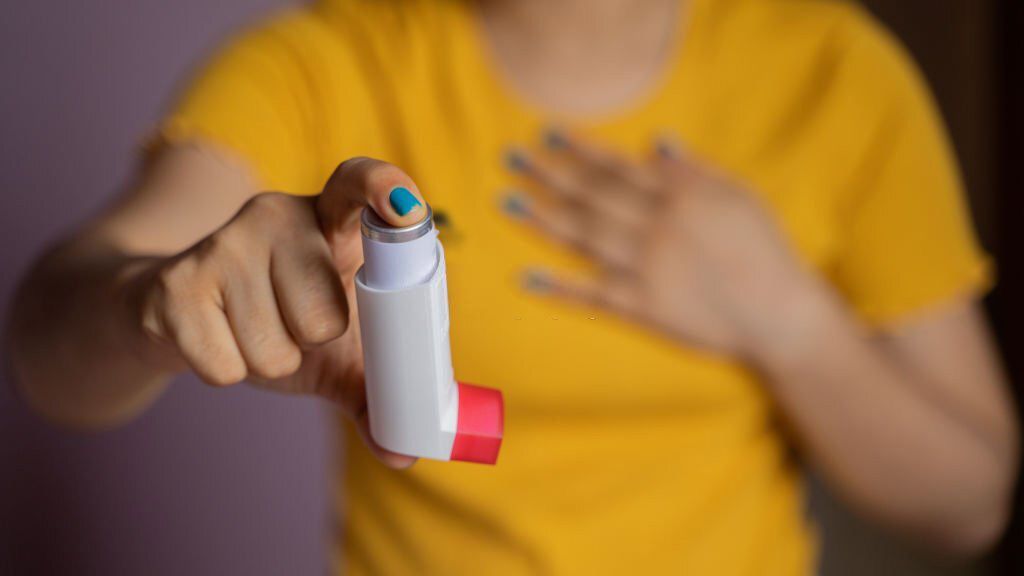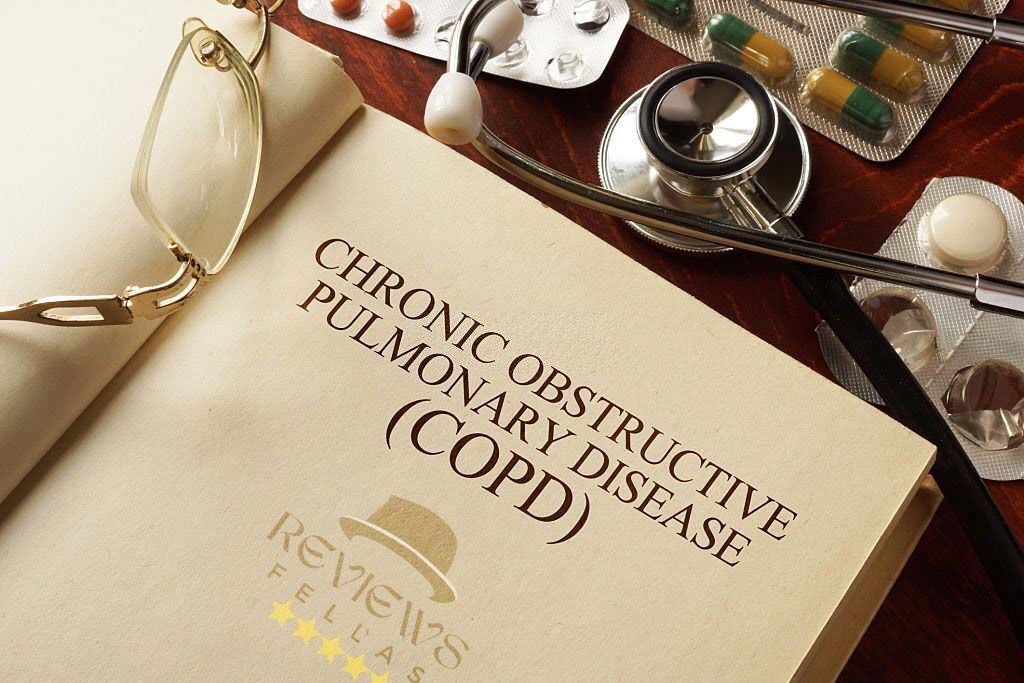This article is reviewed, corrected, and approved by: Dr. Benjamin McLean M.D. | FCPS | FRCP | MPH
Chronic Obstructive Pulmonary Disease (COPD) is a long-term respiratory condition characterized by ongoing restriction of airflow, resulting in increased difficulty with breathing. This disease tends to advance gradually, leading to a decline in lung function over time, and can greatly disrupt one's daily activities. Given the impact COPD can have on individuals, it is crucial to prioritize self-care practices for optimal management.
Causes of Chronic Obstructive Pulmonary Disease (COPD)
Prolonged exposure to respiratory irritants can heighten the likelihood of developing COPD, with cigarette smoking being the predominant factor. This includes both habitual smoking and being around secondhand smoke. Additionally, there are various other factors that can contribute to the development of COPD, such as:
Air Pollution: Inhalation of pollutants from both indoor and outdoor sources can elevate the risk of developing Chronic Obstructive Pulmonary Disease (COPD). Biomass fuels, fumes, chemicals, dust, and smoke are all contributing factors to this respiratory condition.
Genetic Factors: Certain genetic factors can increase the likelihood of an individual developing COPD. Those with Alpha-1 antitrypsin deficiency are particularly predisposed to experiencing early onset of chronic obstructive pulmonary disease according to the ICD-10 classification.
Common Symptoms of COPD
Symptoms of COPD can differ from one person to another in terms of their severity. Some of the commonly observed symptoms of the condition are:
- Shortness of Breath: Difficulty breathing or a sensation of inadequate air intake is a common symptom of both mild and severe COPD. Physical activity can exacerbate this condition. Which may restrict an individual's capacity to carry out daily activities.
- Chronic Cough: A persistent cough that produces mucus or phlegm is another prevalent symptom of CPOD.
- Wheezing: Wheezing is a distinct, high-pitched whistling sound. That usually occurs when airways narrow during breathing. It can be heard when breathing in or out.
Progressive Nature and Impact on Daily Life

COPD is a condition that gradually deteriorates with time. This results in more frequent and severe symptoms that can affect one's daily routine. The progressive nature of COPD can lead to the following:
Increasing Breathlessness
Breathlessness gradually worsens, limiting physical activities and making routine tasks more challenging.
Reduced Lung Function
Over time, the lungs lose their ability to function effectively. This leads to decreased oxygen levels in the blood and reduced lung capacity.
Frequent Exacerbations
COPD exacerbations can worsen symptoms and need medical attention. Leading to hospitalization and decreased quality of life.
Impact on Daily Activities
People who have COPD often face difficulties in accomplishing their daily activities. Such as climbing stairs, walking, and doing household chores. Fatigue and a sense of limitation become common.
Emotional and Social Impact
Living with a chronic and progressive disease like COPD can lead to emotional distress, anxiety, and depression. Social activities and relationships may be affected due to limitations in physical capabilities.
COPD Self-Care Routine

In order to effectively manage COPD, it is crucial to adopt a proactive stance towards maintaining optimal health. Tailoring a personalized self-care regimen for COPD can empower individuals to take control of their condition and enhance their overall well-being.
Here are the key components to consider when building a COPD self-care routine:
1. Medication Management
Proper medication management is essential for managing COPD symptoms and preventing exacerbations. Some common medications for COPD include:
a. Bronchodilators
There are two types of medicine for breathing problems. Short-acting ones that give quick relief and long-acting ones help over a longer period of time.
b. Inhaled Corticosteroids
These medications help reduce airway inflammation and control symptoms. bronchodilators are often used in combination with them.
c. Oxygen Therapy
In the event that you experience difficulty breathing, it is possible that your physician will suggest supplementing your oxygen intake to improve your respiratory function. It is essential that you familiarize yourself with the correct usage of your inhalers and any other prescribed devices, ensuring you employ the appropriate inhalation techniques. Adhering to your medication regimen is crucial, and it is important to openly communicate any inquiries or potential side effects with your healthcare provider.
2. Exercise and Physical Activity
Regular exercise is beneficial for individuals with COPD. As it improves lung function, strengthens muscles, and enhances overall fitness. Consider the following tips:
- Must speak with your healthcare provider. Before starting an exercise program, ensure that it is appropriate for your condition.
- Incorporate aerobic exercises that increase your heart rate. Such as walking, cycling, swimming, or using a stationary bike.
- Include strength training exercises to strengthen your muscles, especially those involved in breathing.
- Improve your breathing by practicing breathing exercises like pursed-lip or diaphragmatic breathing. Start with low-intensity activities. Then gradually increase while listening to your body and taking breaks when needed.
3. Healthy Diet and Nutrition
A well-balanced diet can support your health and help manage COPD symptoms. Consider the following dietary guidelines:
- For a balanced diet, make sure to incorporate a diverse range of fruits, vegetables, whole grains, and protein into your meals.
- Stay hydrated by drinking adequate amounts of water throughout the day. Unless your doctor has advised fluid restriction.
- Avoid foods that may trigger symptoms or cause gas and bloating, such as carbonated drinks, fried foods, and foods high in salt or sugar.
- One way to improve breathing and ease the strain on your lungs is by maintaining a healthy weight.
This chronic obstructive pulmonary disease can be challenging to track on. But with the right care and attention, it's possible to keep symptoms at bay and enjoy a better quality of life.
4. Maintain Respiratory Hygiene
To lower the risk of respiratory infections and minimize COPD flare-ups. It's crucial to maintain good respiratory hygiene. Here are some useful tips:
- Regularly wash your hands with soap and water, especially before touching your face or handling food, to stay safe and healthy. Take a moment to lather up and rinse off.
- It is advisable to be cautious and avoid close contact with individuals who have respiratory infections. For example, those caused by the common cold or influenza.
- Get recommended vaccinations, including the annual influenza (flu) vaccine and pneumococcal vaccine.
- Practice good oral hygiene.
5. Environmental Modifications
If you have COPD, you can improve your symptoms and avoid making them worse by reducing your exposure to things that irritate your lungs. Here are some changes you can make to help with this:
- Quit smoking if you are a smoker. Cigarette smoking is the primary culprit behind COPD and has the potential to exacerbate the ailment seriously.
- Avoid exposure to secondhand smoke, air pollution, and other respiratory irritants. Such as strong chemicals or fumes.
- Create a clean and well-ventilated living environment by keeping your home clean. Use air purifiers if necessary, and avoiding triggers like dust, pet dander, or mold.
- Keep an eye on the air quality in your area and plan outdoor activities when it is less polluted.
6. Emotional and Mental Well-being
COPD can have emotional and mental impacts, so it's crucial to focus on your emotional well-being. Consider the following strategies:
- Talking to others who understand can be helpful. Reach out for emotional support when needed.
- Take part in stress-mitigating techniques, such as diaphragmatic breathing exercises, and mindfulness meditation. Or engaging in leisure activities that bring you inner satisfaction.
- Talk openly with your physician about any emotional challenges, such as anxiety or depression.
COPD Self-Care Is Easy. Watch How!
Conclusion
Establishing a comprehensive approach to managing COPD involves several key components. It is important to prioritize proper medication management, incorporate regular physical activity, and maintain a balanced diet. Additionally, practicing good respiratory hygiene, making necessary environmental adjustments, and prioritizing emotional well-being are crucial. By incorporating these elements into your daily routine, you can effectively manage your COPD and improve your overall well-being, ultimately enhancing your quality of life.
F.A.Qs
Is COPD genetic?
A: COPD has both genetic and environmental factors, but it is primarily caused by smoking and exposure to pollutants.
How many stages of COPD are there?
A: Depending on the severity of the disease, COPD is subdivided into mild, moderate, severe, and very severe (stage 4 COPD) - depending on the intensity of airflow limitation and accompanying symptoms.
COPD vs emphysema. What’s the difference?
A: Chronic obstructive pulmonary disease icd 10 is a broader term. That includes emphysema, along with chronic bronchitis. Emphysema specifically refers to the damage to the air sacs (alveoli) in the lungs, causing difficulty in exhaling air.
Does copd get worse over time?
A: If Chronic obstructive pulmonary disease is not treated in time. It may got worsen over time.
COPD Self-Care Routine
- Medication Management
- Proper management of bronchodilators, inhaled corticosteroids, and oxygen therapy is crucial.
- Consistency in medication intake and open communication with healthcare providers are essential.
- Exercise and Physical Activity
- Regular, doctor-approved exercise improves lung function, muscle strength, and overall fitness.
- Focus on aerobic and strength training exercises, alongside breathing techniques.
- Healthy Diet and Nutrition
- Balanced nutrition supports overall health and COPD symptom management.
- Emphasis on fruits, vegetables, whole grains, protein, hydration, and avoiding trigger foods.
- Maintain Respiratory Hygiene
- Handwashing, avoiding close contact with sick individuals, vaccinations, and good oral hygiene reduce infection risk.
- Environmental Modifications
- Quitting smoking, avoiding secondhand smoke, and minimizing exposure to pollutants and irritants are crucial.
- Creating a clean, well-ventilated living environment is advised.
- Emotional and Mental Well-being
- Seek emotional support, engage in stress-reducing activities, and communicate with healthcare providers about emotional challenges.


